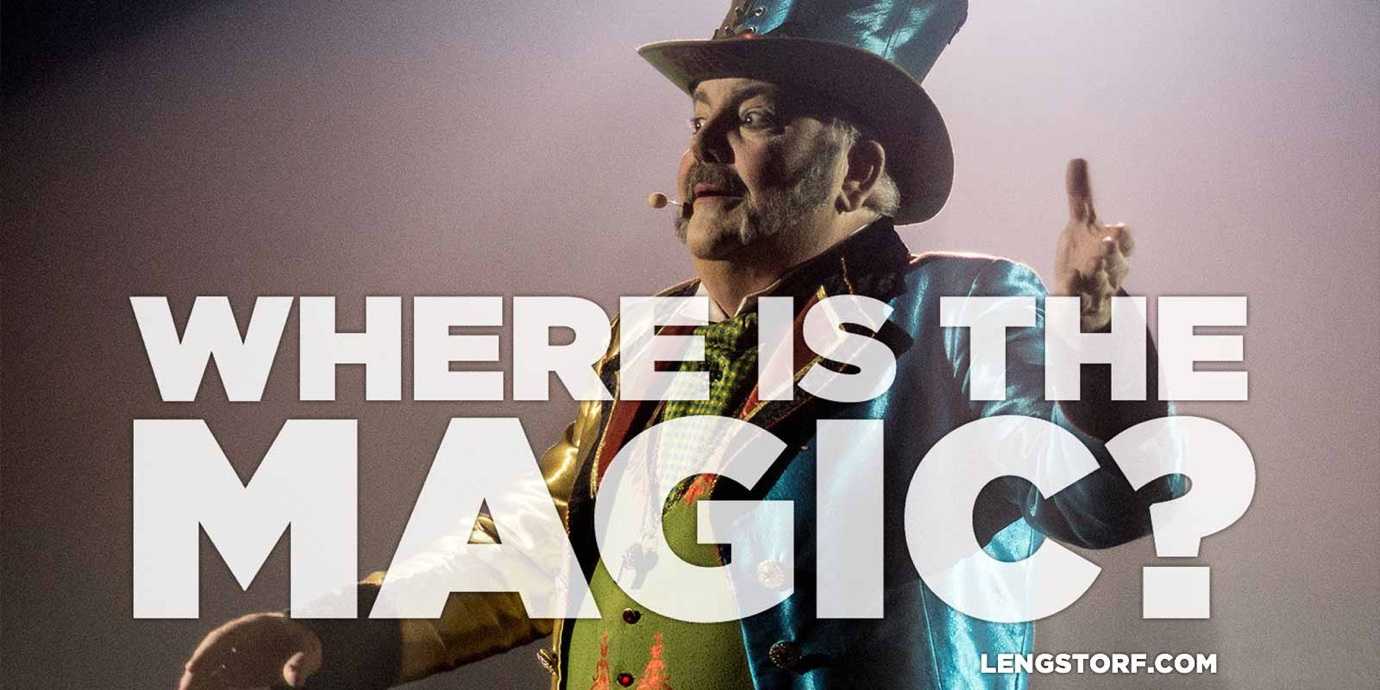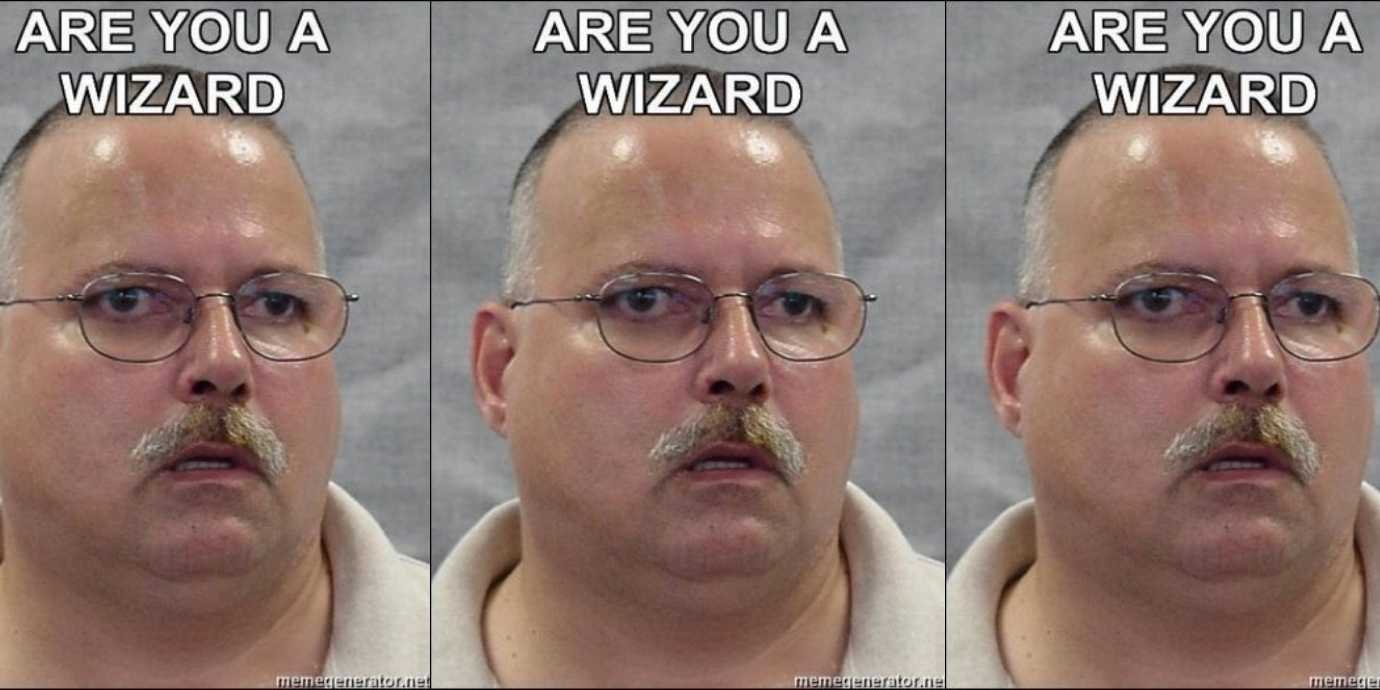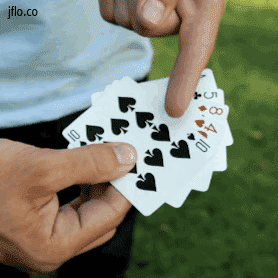Where Is the Magic?
As kids, we see a lot of the world around us as magical. Then, as we get older, the magic gives way to understanding. But is losing the magic a good thing?

The Curse of Knowledge
When I was first starting out in business, I read a book called Made to Stick. Among other things, I was introduced to The Curse of Knowledge, which is the idea that — as we become more familiar with a given topic — we are unable to explain an idea well to someone who doesn’t know.
Think about any time you’ve played charades, and by the end you’re ready to scream at your team, “How could you not get that?!”
In your head you were perfectly pantomiming Gone with the Wind.
What your team saw was you riding an imaginary horse and waving your fingers like you were casting a spell.
Once you know something, it’s extremely difficult to see it from the perspective of someone who doesn’t.
The Other Curse of Knowledge
There’s another curse of knowledge, though, and it’s a little sneakier. The Revenge of the Curse of Knowledge, if you will.

When I was young, I thought my dad was basically a wizard because he could tie shoes.
I thought my mom was conjuring up cookies through some dark art or another.
Tiny people lived in my television to entertain me.
A rabbit and a fat man broke into my house to leave candy and gifts every so often.
My closet was a portal to the worst place imaginable.
The world was full of magic, and I was awestruck.
Disillusionment, or How the Magic Died in a Book
Eventually, I learned how to tie my shoes. I added the ingredients my mom had measured out into a bowl and watched cookies take shape. I learned enough about TV signals to know there weren’t actually tiny people in there. Dad spilled the beans about Santa and the Easter Bunny.
(The closet still creeps me out, though.)
Bit by bit, the magic was stripped away and the simple truth about how things worked was laid plain.
I was no longer awestruck. Instead, I was condescending to the people around me who hadn’t learned yet.
A World without Magic
Every time I see something amazing, it feels like magic. I’m blown away. I tell my friends. If there’s a YouTube clip, I’m sharing it.
I saw this guy — Dub FX — on the streets of Amsterdam, and I was convinced he was a sorceror.
It’s just a dude with a microphone. He starts singing. Then… holy shit what just happened? It must be magic!
But it’s not. It’s a talented musician who can beatbox and operate a looping station.
Impressive? Absolutely.
Magic? Not at all.
Losing My Sense of Wonder
But it’s not just entertainment and childhood stories that have lost the soft glow of pixie dust; I’ve felt a similar sense of disillusionment with my own life.
When I first started building websites, code was still fairly mystical to me. I could do a few things, but most of what I saw was beyond my grasp; otherworldly manifestations brought forth by the legendary Mystics of Nerd.
Successful freelancing was a dark art. Saving money required an incantation from a book bound in human skin. If I wanted to be any good at sex, I needed to sacrifice a goat at Kilauea.
But the more I learned, the more I realized that none of this is sacred, supernatural, or even secret. There are no shortcuts. No “weird tricks” to make someone suddently good at a skill.
There is no magic. It’s all just hard work, practice, actually giving a shit.
Does Magic Matter?

Well, who cares if there’s no magic? We’re adults, dammit, and magic is for children. And David Blaine.
Sure. That’s fair.
But I’m not ready to give up my sense of wonder. I like being blown away by something that I don’t understand.1 I want to be surrounded by wizards and fairies and sorceresses who are making impossible things happen all around me.
At least at first; eventually I want to know how it works.
If I lose my sense of wonder, then I’m resigning to a life of familiar, comfortable tasks. I’m assuming that there’s nothing left to surprise me. Giving in to the part of me that’s jaded and pessimistic that beleives there’s nothing new anyways and why bother at all.
I’m not sure I’d like myself without the hope for magic.
So How Can We Bring the Magic Back?
The problem with The Revenge of the Curse of Knowledge is that once you’ve seen behind the curtain, you can’t unsee it. The wizard is just a dude with a killer pyrotechnics setup.
So there’s no going back to the kind of awe and wonder we felt as children. And that’s probably okay; I lost a lot of sleep wondering if my uncle would ever give my nose back, and I just couldn’t afford that today.
But we can find new magic, and remember to actually feel that amazement that comes along with seeing something new and wonderful.
It can be big stuff, like learning that there were shark-eating dinosaurs or that scientists are working on tiny robots that fight cancer.
Or it can be the little things we might completely dismiss if we’re not paying attention: when the new project you’re working on falls into place for the first time; when the outfit you chose today gets compliments from everyone you meet; when you think to yourself, “I really wish I had a blueberry muffin,” and then someone from the office lets you know there are muffins in the break room and should they save you one.
Our lives are full of small, magical moments. If we’re looking for them, that is.
What’s Magical in Your Life Right Now?
Think back over the last few days. What’s happened that felt like magic?
I wanted cheesecake the other night, and a local bar had a cheesecake special that night. I toured the Willett Distillery, saw how some of my favorite bourbon is made, and sampled some of the very rare, expensive labels. I discovered a band that makes my hair stand on end.
It’s not quite Santa Claus, but it’s enough.
Where have you felt a little bit of magic in your life lately?
What to do next.
If you’re like me, the idea of traveling permanently while making a living probably seems like a dream — but you don’t think you can pull it off.
I felt that way right up until I actually boarded a flight to leave the United States back in 2014 — and now I can’t believe I didn’t start living this life sooner.
The secret to a life on your terms — work where and when you want, living anywhere in the world — is remote work. And there’s good news: it’s easier than ever before to join the ranks of location-independent workers around the world.
I want to help you. The best remote workers all have a set of non-technical skills, and I’ve put together a free 6-point checklist to help you master them — and ultimately master your time and ability to work anywhere in the world.